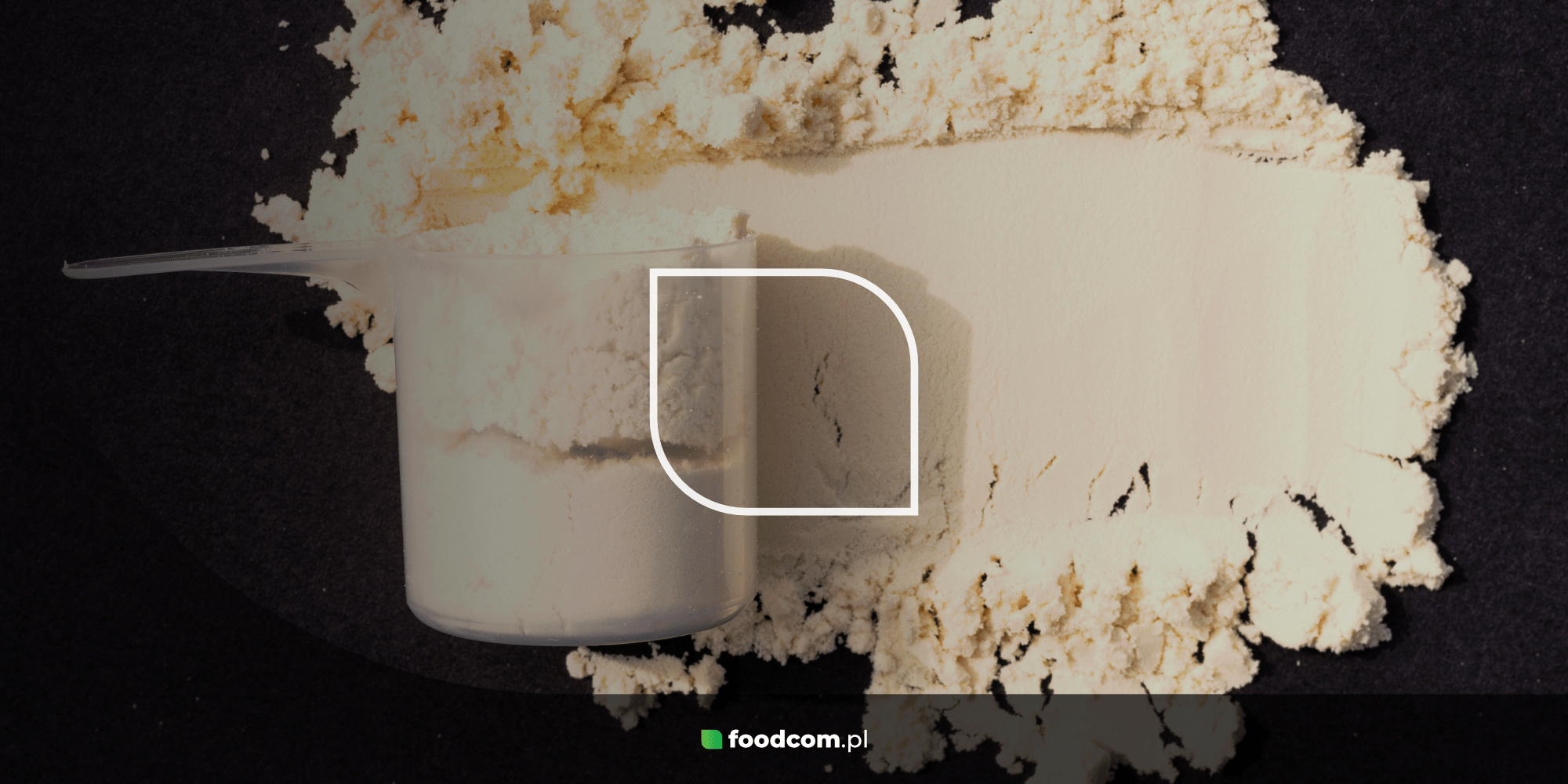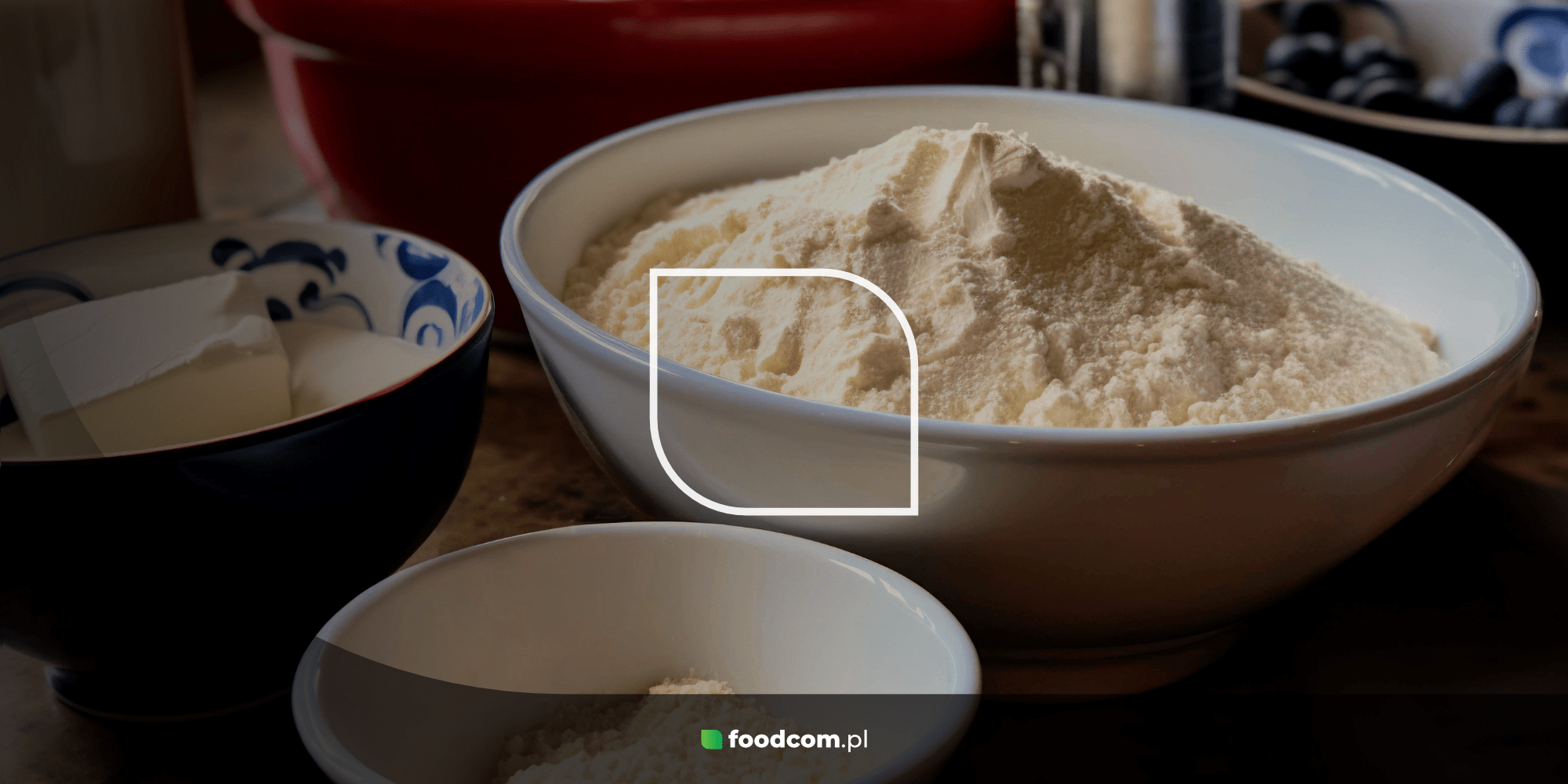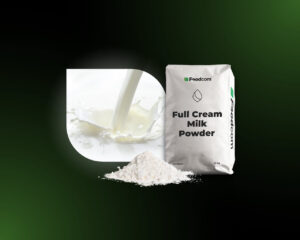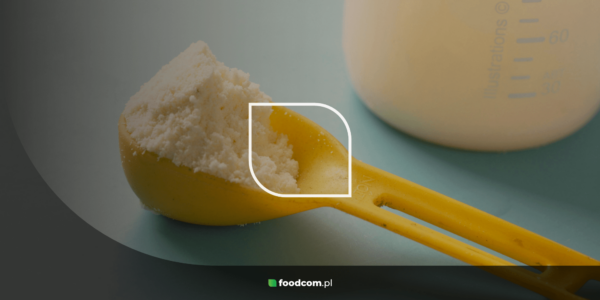- Milk powder has nutritional values similar to liquid milk, but comes in a more convenient form for use.
- It is created by evaporating water from milk and spray drying the concentrated product.
- Standardized milk powder with different compositions can be used in various industries.
Milk powder is one of the key dairy products, commonly used in the food industry and in the kitchen. In this article, we take a closer look at this versatile product, explaining how milk powder is made, the types of milk powder and its use in industry.
What is milk powder and what types of product are there?
Powdered milk is made by evaporating water from liquid milk, resulting in a product that is stable and easy to store. In its powdered form, milk retains most of its nutrients.
Different types of milk powder are available on the market, such as:
- full cream milk powder(FCMP – Full Cream Milk Powder) – rich in milk fats, making it intensely flavoured and high in calories, valued in the confectionery and baking industry.
- skimmed Milk Powder (SMP – Skimmed Milk Powder) – is characterised by its low fat content, making skimmed milk an ideal ingredient in dietary foods.
- milk powder in the form of specialised products enriched with additional ingredients such as vitamins, minerals or probiotics.
Properties of powdered milk
Milk powder is in the form of a solid white or creamy powder with a mild, milky, caramel taste. It contains more than 30% protein and the fat content can vary from as little as 1% to more than 20%. It also contains a high amount of lactose, minerals and vitamins.
The key properties of milk powder make it a desirable product because of:
- long shelf life – powdered milk can be stored for many months or even years;
- ease of transportation;
- its richness in nutrients;
- versatility – it can be used in a wide range of food industries and its composition can be customised.
What is the production of milk powder like?
The production of milk powder is a technological process involving the evaporation of water from pasteurised cow’s milk and spray drying of the product. In this process, we can distinguish such stages as:
- milk preparation – testing the quality and purity of the milk and its standardisation, i.e. adjusting the fat and nutrient content.
- pasteurisation – heating the milk to a specific temperature in order to destroy pathogenic microorganisms and prolong its shelf life while maintaining the product’s taste and nutritional qualities.
- evaporation of water – devices called evaporators or vacuum pumps are used for this purpose. By evaporating the water, the milk is condensed and loses about 50-60% of its volume.
- spray drying – the condensed milk is pulverised in a drying chamber where hot air removes the remaining water, turning it into a fine powder.
- packaging – the finished milk powder is sieved to ensure a homogeneous consistency of the product and then packaged in airtight containers.
Uses of milk powder
Milk powder is used in a wide variety of applications. Its water-binding properties promote the desired consistency of various products, and its high protein content facilitates emulsification, foaming, whipping, gelling and thickening. It is also prized for its high nutritional value. Let’s find out what can be produced from milk powder in the various industries:
- food industry – it is used in confectionery, bakery products, ice cream, creams, instant soups and sauces, and as an additive to coffee and tea.
- pharmaceutical industry – found as an ingredient in dietary supplements and nutritional supplements for athletes and modified milk for infants.
- cosmetics industry – it is used in products such as creams and shampoos.
- animal feed – is sometimes used in feed for young livestock.
Availability of milk powder on the market and leading manufacturers
Milk powder is widely available on the global market and its production is mainly concentrated in countries with a developed dairy industry, such as the USA, European Union countries, Australia or New Zealand. The milk powder market also plays an important role in Poland, and many producers export their products outside our country. Well-known producers of powdered milk include Nestlé, Lactalis, Danone or the Polish Mlekovita. A recommendable distributor of powdered milk is Foodcom S.A., which offers high-quality products tailored to meet a variety of customer needs.
Powdered milk is a product with many advantages which plays an important role not only in the food industry. Thanks to advanced technological processes, it is possible to obtain a product that is not only durable and full of nutritional value, but also adapted to the diverse needs of customers.








![Using acid whey in functional preparations – a new way to process dairy waste [World News] Using acid whey in functional preparations – a new way to process dairy waste [World News]](https://foodcom.pl/wp-content/uploads/2023/09/Foodcom_World_News_Industrials-600x300.jpg)


